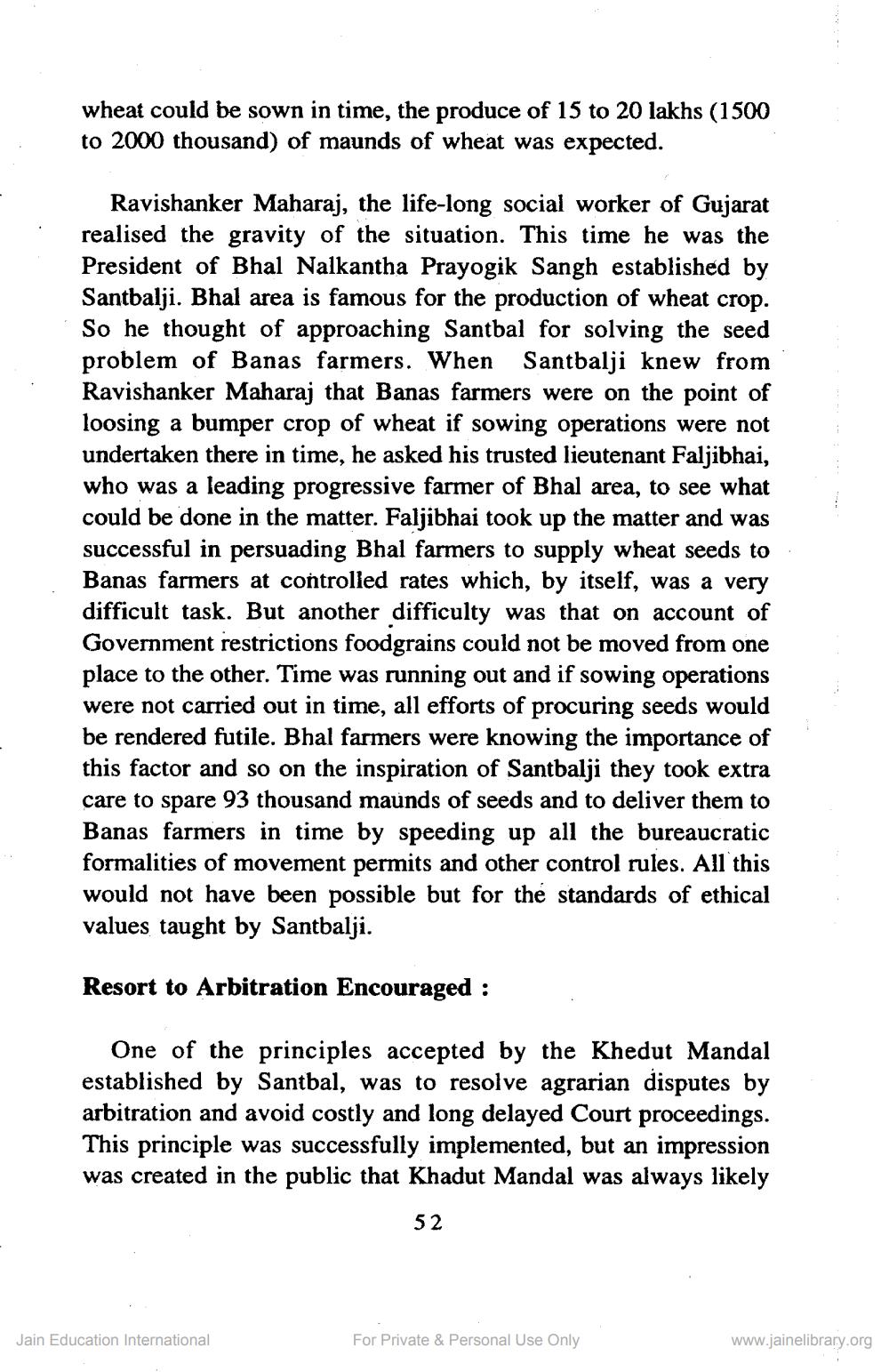________________
wheat could be sown in time, the produce of 15 to 20 lakhs (1500 to 2000 thousand) of maunds of wheat was expected.
Ravishanker Maharaj, the life-long social worker of Gujarat realised the gravity of the situation. This time he was the President of Bhal Nalkantha Prayogik Sangh established by Santbalji. Bhal area is famous for the production of wheat crop. So he thought of approaching Santbal for solving the seed problem of Banas farmers. When Santbalji knew from Ravishanker Maharaj that Banas farmers were on the point of loosing a bumper crop of wheat if sowing operations were not undertaken there in time, he asked his trusted lieutenant Faljibhai, who was a leading progressive farmer of Bhal area, to see what could be done in the matter. Faljibhai took up the matter and was successful in persuading Bhal farmers to supply wheat seeds to Banas farmers at controlled rates which, by itself, was a very difficult task. But another difficulty was that on account of Government restrictions foodgrains could not be moved from one place to the other. Time was running out and if sowing operations were not carried out in time, all efforts of procuring seeds would be rendered futile. Bhal farmers were knowing the importance of this factor and so on the inspiration of Santbalji they took extra care to spare 93 thousand maunds of seeds and to deliver them to Banas farmers in time by speeding up all the bureaucratic formalities of movement permits and other control rules. All this would not have been possible but for the standards of ethical values taught by Santbalji.
Resort to Arbitration Encouraged :
One of the principles accepted by the Khedut Mandal established by Santbal, was to resolve agrarian disputes by arbitration and avoid costly and long delayed Court proceedings. This principle was successfully implemented, but an impression was created in the public that Khadut Mandal was always likely
52
Jain Education International
For Private & Personal Use Only
www.jainelibrary.org




